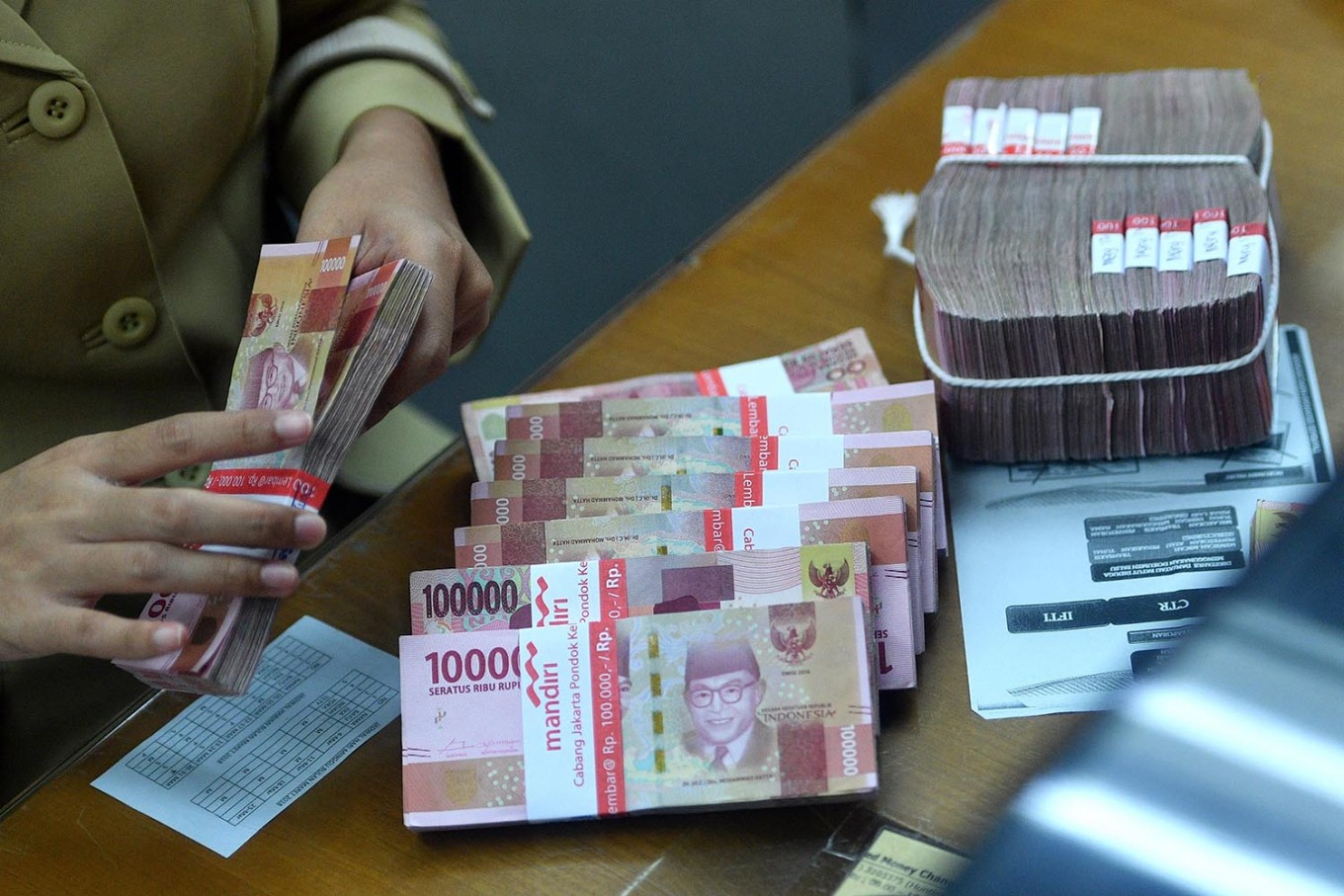Popular Reads
Top Results
Can't find what you're looking for?
View all search resultsPopular Reads
Top Results
Can't find what you're looking for?
View all search resultsRupiah depreciates 4.5% as BI easing fails to entice investors
Change text size
Gift Premium Articles
to Anyone
T
he rupiah depreciated 4.5 percent on Thursday as it nears Rp 16,000 per US dollar, a level unseen since the 1998 crisis, as Bank Indonesia’s (BI) easing move fails to entice investors on a selling-spree amid COVID-19 fears.
The rupiah stood at Rp 15,912 against the greenback as of 3:40 p.m. BI on the same day cut its benchmark interest rate by 25 basis points to 4.5 percent to boost economic growth, which it expected to slow to a 15-year low level of 4.2 to 4.6 percent this year. The central bank also announced measures to calm the market rout and stabilize the rupiah.
The rupiah recorded its lowest level in history of Rp 16,800 to a dollar in June 1998 after widespread rioting that led to the downfall of former President Soeharto, who led Indonesia for 32 years.
The day’s freefall continued to cement the rupiah as Asia’s worst-performing currency as it has depreciated by 14 percent so far this year from Rp 13,635 per US dollar on Jan. 24 when the rupiah was the region’s best performing currency. In the past month alone, the currency plummeted 13.7 percent against the dollar, the biggest loss among major Asian currencies.
Indef economist Bhima Yudhistira said the central bank’s easing measures were not enough to stop the rupiah from losing its might against the greenback.
“Ideally, BI should cut its rate by 50 bps to signal that the central bank is ahead of the curve,” he told The Jakarta Post.
The central bank’s triple market intervention in the currency market and purchase of government bonds failed to cushion the blow for the currency.
“It’s unclear whether BI has enough ammunition for the rupiah as our foreign exchange reserve is very limited compared to other Southeast Asian countries,” he said.
According to CEIC data, Indonesia’s forex reserve to GDP stood at 10.9 percent last year. The figure is significantly lower than Malaysia which stood at 27.2 percent, Thailand at 39.4 percent and the Philippines at 21.7 percent.
Bhima predicted that the rupiah could touch the Rp 16,500 to Rp 17,000 level in the short term if BI failed to launch extraordinary policies that could stymie further weakening.
Stock market players had a similarly negative reaction to BI’s move as the Jakarta Composite Index (JCI) continued to weaken by 5.2 percent to 4,105.42 even after the bourse halted trading for 30 minutes at 9.37 a.m. thursday morning. Foreign investors dumped Rp 635.87 billion worth of Indonesian shares during the day.
Anugerah Mega Investama analyst Hans Kwee told the Post that although BI’s announcement was a breath of fresh air for market players, it failed to slow down the index’ slump as the global sentiment caused by the spread of the coronavirus still clouded the country’s stock market.
“The market is still concerned about the rapid spread of the virus,” he said. (ydp)










